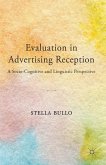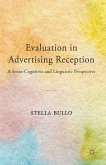Advertising has traditionally communicated messages to consumers with strong local and national identities. However, increasingly, products, producers, advertising agencies and media are becoming internationalized. In the development of strategies that appeal to a large multinational consumer base, advertising language takes on new 'multilingual' features. The author explores the role of advertising language in this new globalized environment, from a communicative theory point of view, as well as from a close linguistic analysis of some major advertising campaigns within a multicultural and multilingual marketplace.
'Advertising as Multilingual Communication has been anticipated by researchers in the field, and will certainly not disappoint them. Helen Kelly-Holmes' book explains, in a very well-written way, how advertising discourse uses foreign languages - on one end of a continuum - as a means of communication with speakers of a minority language in a country or - on the other end - as a linguistic symbol that creates positive associations in the minds of the receivers of the advertisement.' - The European Journal of Communications Research
'Her acute analyses and important conclusions provide food for thought for anyone interested in contextualized language use, and they should inspire and inform future studies in a wide range of subfields in language and communication studies, cultural studies, and social sciences, not to mention marketing.' - Language in Society
'Her acute analyses and important conclusions provide food for thought for anyone interested in contextualized language use, and they should inspire and inform future studies in a wide range of subfields in language and communication studies, cultural studies, and social sciences, not to mention marketing.' - Language in Society








